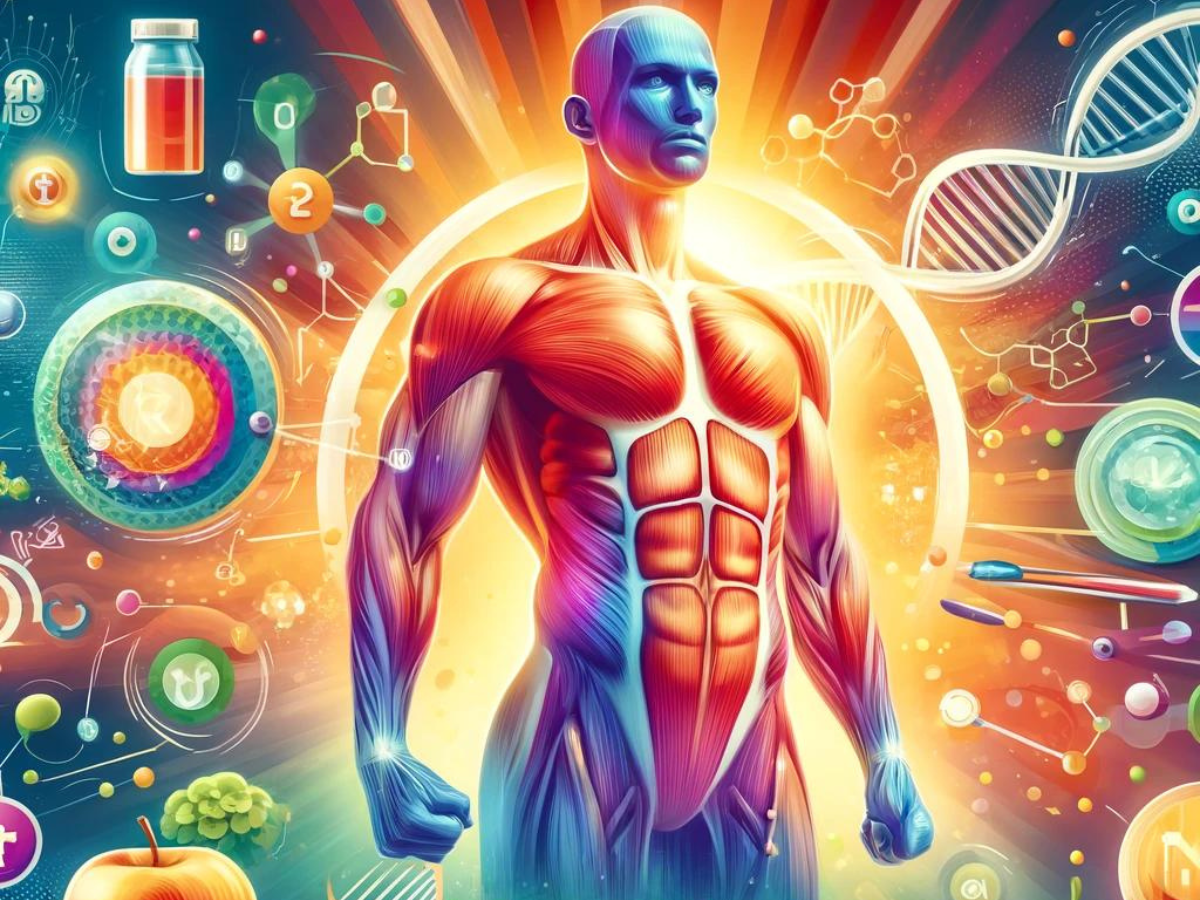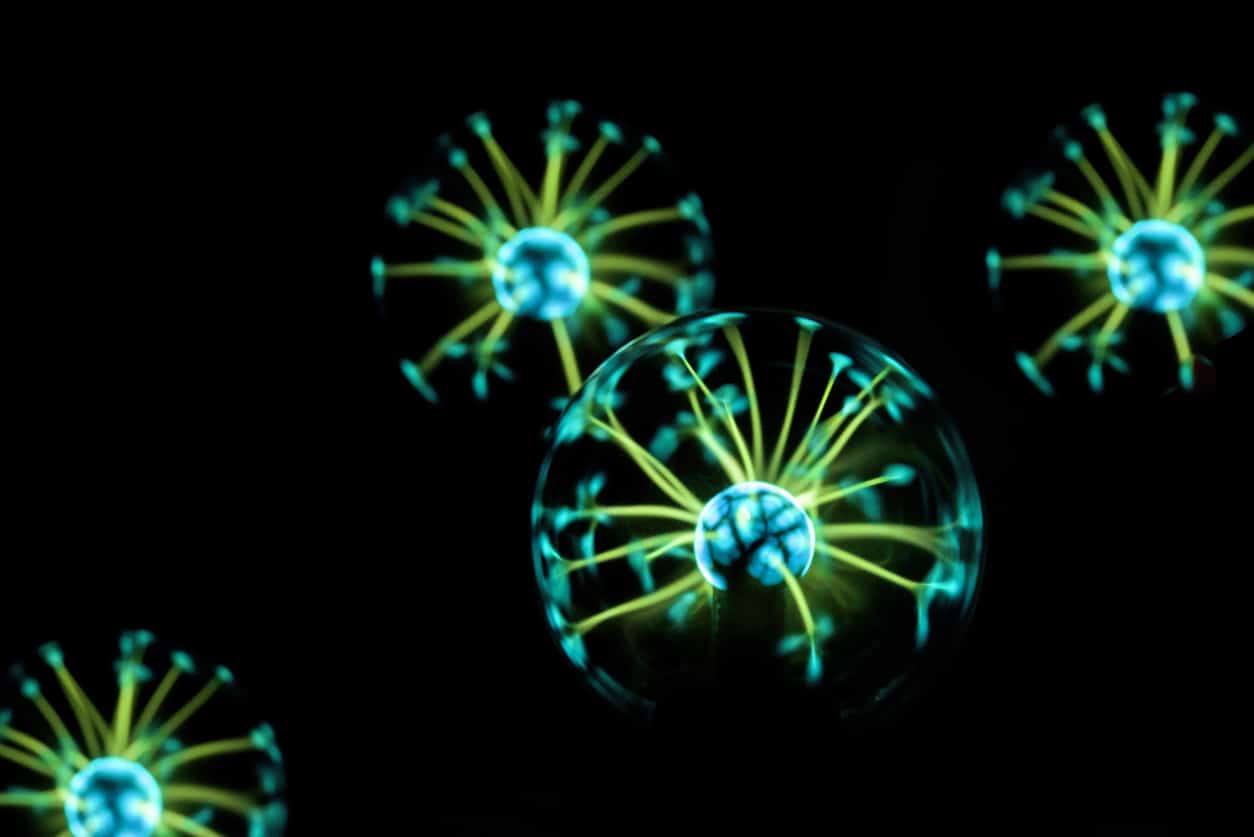
If you want to live forever, or at least until 180 like Dave, look to your heart. In a recent Bulletproof Radio (iTunes) podcast episode, mechanical engineer-turned-physician Peter Attia, who now specializes in the applied science of longevity, revealed that a strong and healthy heart is the real secret to longevity.
Proof? According to Attia, centenarians live longer than the rest of us because of their genes. Yet they still fall prey to the same diseases the rest of us get, only decades later — and what always takes them down, says Attia, is heart disease.
What you might find even more surprising: The key to a healthy heart actually lies in your mitochondria, those miniscule powerhouses in your cells that fuel your entire body, including your heart.
How mitochondrial health equals a strong and lasting heart
Arteries fail due to chronic inflammation
Conventional medicine doesn’t always get it right with heart disease – from diagnostic tests to heart-healthy advice, there’s a lot that’s unclear regarding how to properly care for your good ole pumper.
Related: The Science Behind the Top 10 Claims from What the Health
So first, some background information that’ll simplify any confusion:
Cholesterol isn’t the real villain when it comes to heart attacks and strokes. Your arteries go out – first and foremost – due to inflammation.[ref url=”https://www.ncbi.nlm.nih.gov/pmc/articles/PMC5003124/”] Remember, at its root, and in acute instances like when you cut your finger, inflammation is just your body’s way of protecting itself. In that instance, a swat team of white blood cells surround your cut, protecting it from infection.
However, chronic inflammation – when that same swat team of white blood cells are on duty 24-7 without rest or a water break, so to speak – causes bigger problems. Your body begins to rebel against itself because it’s overloaded. In the case of your heart, inflammation wreaks serious havoc because it leads to the buildup of fatty deposits called plaque.[ref url=”http://med.stanford.edu/news/all-news/2012/12/international-study-points-to-inflammation-as-cause-of-plaque-buildup-in-heart-vessels-researchers-say.html”] Your body thinks plaque is foreign, so your white blood cells try to fend it off. Yet, when the white blood cells are overloaded from combating plaque — and eventually unsuccessful — the plaque ruptures. Its contents leak into your blood and create a clot that blocks healthy blood flow. These clots lead to the majority of most heart attacks.[ref url=”https://www.bhf.org.uk/heart-matters-magazine/news/behind-the-headlines/blood-clot-breakdown-and-heart-attack-prevention”]
Chronic inflammation is linked to poor mitochondrial health
To keep your arteries strong and clear of plaque, you need to reduce body-wide inflammation. Without inflammation, cholesterol can’t accumulate in your arteries to begin with. The best way to keep inflammation at bay? Plain and simple: manage and maintain your mitochondrial health. Here’s why:
Mitochondria make the body’s most basic fuel called adenosine triphosphate (ATP) from oxygen and food you consume. If you eat crappy, inflammatory foods, the fuel it produces will also be faulty — and you won’t operate at your best. Think of ATP as the gas in your car. If you get a junk tank of fuel, your car won’t hum like it should.
In addition to fueling your body, mitochondria break down cellular waste to use as fuel.[ref url=”https://www.alzforum.org/news/research-news/brain-drain-glymphatic-pathway-clears-av-requires-water-channel”] However, if mitochondia are overstressed and overworked, the waste builds up and mitochondria weaken. Your body won’t be able to handle even small everyday exposure to toxins, like pesticides or pollution, because your mitochondria aren’t functioning properly.
The connection between mitochondrial health and a strong heart
Your heart muscles have more mitochondria than any other organ in your body – 5,000-10,000 mitochondria per cell, in fact.[ref url=”https://www.ncbi.nlm.nih.gov/pubmed/23271420″] These little guys are necessary because your heart muscle cells have the high-demand job of continuously pumping day-in and day-out over your entire lifetime. They never, ever get a break.
That’s why the way to a strong heart – and a bad-ass long life – is by bringing your A-game to mitochondrial health.
6 mitochondrial ways to a strong heart
Here are six mitochondrial fixes that will ramp up your cardiovascular system STAT:
Minimize your exposure to 3 environmental toxins
Most chronic inflammation is the result of unwanted substances in the body, such as environmental toxins like pesticides, mold, and food toxins called mycotoxins.[ref url=”https://www.ncbi.nlm.nih.gov/pmc/articles/PMC4579563/”] Science strongly supports the fact that environmental toxicity lowers mitochondrial function[ref url=”https://academic.oup.com/toxsci/article/134/1/1/1666668″][ref url=”https://www.ncbi.nlm.nih.gov/pmc/articles/PMC4312177/”], which in turns lowers vascular function.[ref url=”https://www.ncbi.nlm.nih.gov/pmc/articles/PMC3786553/”] To keep your mitochrondria in tip-top shape, eliminate these three toxins:
Pesticides
Pesticides like glyphosate, the active ingredient used in weedkillers like Roundup, affect mitochondrial ability to generate ATP.[ref url=”https://www.ncbi.nlm.nih.gov/pubmed/16263381″] While it’s nearly impossible to avoid glyphosate completely – unless you live off-the-grid on your own land – there are steps you can take to both minimize your exposure and get pesticides and herbicides out of your body.
- Eat organic food that originates from sustainable farming practices. This reduces your exposure to water- and soil-based chemicals. The Bulletproof Diet is based on organic food for this very reason.
- Detoxify from chemicals that are already in your body by breaking a sweat. Both exercise and time in a sauna help your body to excrete chemicals naturally.[ref url=”https://search.proquest.com/openview/b5c17f8e0ea2f658e4a92f6b9339509f/1?pq-origsite=gscholar&cbl=32528″] Read on for more ways to detoxify from glyphosate.
Environmental mold
Mold, particularly as a result of water-damaged buildings, is a definitive culprit in compromised mitochondrial function[ref url=”https://www.ncbi.nlm.nih.gov/pmc/articles/PMC3654247/”], Follow these steps to minimize your mold exposure immediately.
- If you suspect mold in your home, have it professionally inspected. An ERMI (Environmental Relative Moldiness Index) Air Test evaluates the risk for indoor mold growth and associated health effects in your home or office.
- Remove and remediate any existing mold from your home. If an ERMI reveals you do live in a mold-ridden environment, get out immediately. Stay with family or friends until a remediation specialist has given you the green light to go home again.
- Prevent new mold from forming in your bathroom and other damp areas with Homebiotic, a probiotic spray that prevents mold growth.
For more tips on how to combat mold, read Top 11 Ways to Beat Toxic Mold In Your Home And Life.
Mycotoxins
Toxins in food called mycotoxins also inhibit mitochondrial function.[ref url=”https://www.ncbi.nlm.nih.gov/pmc/articles/PMC3268453/”] Mycotoxins, produced by mold, arise from the manipulation of food – through growing, cooking, and fermentation processes. To keep mycotoxins out of your body, avoid foods that most often contain them (more on that below) and take supplements to detox from mold exposure.
- Avoid gluten, yeast, wheat, corn, grain (other than white rice), barley, peanuts, cottonseed, grain-fed meat and dairy, mushrooms, and commonly available chocolate. Even unfiltered tap water, unfiltered alcoholic beverages (beer and wine), and commonly available coffee can contain high mycotoxin levels.
- Consume more organic vegetables and wild-caught fish, which bind to mycotoxins, thereby helping to remove them from your body.
Avoid overeating, especially sugary carbs
Overeating can cause you to get LPSs (lipopolysaccharides) which cause mitochondrial inflammation[ref url=”https://www.ncbi.nlm.nih.gov/pmc/articles/PMC4691133/”], and have been linked to everything from Parkinson’s Disease to autism.[ref url=”https://www.ncbi.nlm.nih.gov/pmc/articles/PMC3025048/”] LPS is a compound made of fats and sugar that’s normally protective. However, when LPSs release into the bloodstream, they become a dangerous toxin that drives up inflammation. The solution? Eat plenty of fibrous veggies rather than binging on sugary carbs.
Bind and release your toxins
- Take supplements that bind to toxins and flush them out of your system. Those include calcium d-glucarate, chlorella, and charcoal. Activated charcoal can absorb chemicals, drugs, pesticides, mercury, and even lead before they inflame your body.[ref url=”https://www.uofmhealth.org/health-library/hn-5203004″] Take 1-2 charcoal pills after you suspect exposure. Read Activated Charcoal: A Strange Way to Detox for more tips on how to use activated charcoal to bind unwanted materials from your body and release them rapidly.
- Get all the details on the best supplements to eliminate toxins here.
Increase bile flow throughout your body
Bile is a fluid that helps you to digest fat properly, as well as to break down toxins. It’s secreted by the liver, though stored in the gallbladder. With insufficient bile, your body will have trouble binding and excreting the toxins that accumulate in it.[ref url=”https://www.ncbi.nlm.nih.gov/pmc/articles/PMC4091928/”] It’s somewhat of a catch-22 because toxins impair your body’s ability to produce bile, yet bile is a necessity to help you excrete toxins. What to do?
- Consume saturated fats, like grass-fed meat and butter, to stimulate bile production.[ref url=”https://hal.archives-ouvertes.fr/hal-00897604/document”]
- Avoid foods containing mold alfatoxins like peanuts, corn, milk, cheese, nuts, and soybeans that impair liver function, thus lowering bile production.[ref url=”https://www.nature.com/articles/215882a0″]
- Supplement with ox bile and lipase. Most people have been on a low-fat diet at one time or another, which has the effect of down-regulating the natural bile production in your gallbladder. When you switch to a high-fat diet, take the enyzme lipase to help you to digest fat better. Aim for a high-quality lipase supplement that is free of toxic mold species like Aspergillus. You can also combine lipase with ox bile, which further assists to break down fats and promote fat-soluble vitamin absorption.
Supplement to support maximal mitochondrial health
Supplementation can go a long way toward improved mitochondrial health. In particular, Bulletproof offers two supplements that help you sustain high energy at the cellular level:
- Unfair Advantage helps your mitochondria to create more energy (ATP) and keeps them running at peak performance. This formula pairs active PQQ with CoQ10, a well-known enhancer of mitochondrial function, to increase its overall effects.
- KetoPrime mimics the effect of calorie restriction, which assists your body to create new mitochondria. KetoPrime also helps to boost the overall output of your mitochondria, thereby giving you clean-burning energy sans jittery stimulants.










